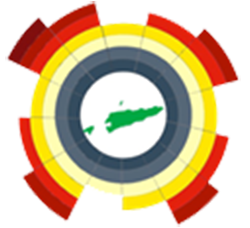

As the decentralization reform progresses, Timor-Leste Municipalities acquire more responsibilities and independence regarding service delivery and public finance management roles. In this context, access to good quality data is fundamental, to ensure fact-based decision-making and decisions that correspond to local realities. An important amount of data already exists in Timor-Leste, produced by the Government, development partners, and civil society, but these data are scattered across sources and often difficult to access. In this context, the need for a unique platform, user-friendly and accessible to all, was identified.
Providing open data at local level is also fundamental for citizen participation and collaboration in local policy decision-making. It opens a communication channel between the Government and the citizens and allow people to not only track but also responds to policies implemented by the Government, both at central and local levels. This Portal is accessible to all, including citizens and civil society, and aims to support transparency and active citizen involvement in local decisionmaking.
The Municipality Portal serves as a national portal to track and monitor the development status of all 12 municipalities and their sucos, based on a series of selected indicators covering sectors that include Health, Education, Socio-Economic, Demography, Infrastructure, Gender, and Agriculture. The Portal is also addressed to citizens and provides basic information on each Municipality, including service delivery and procedures at Municipal level. Finally, the Municipality Portal provides information on on-going infrastructure projects for a selected number of sectors, to facilitate project monitoring and avoid duplication.
The Portal is administered by the Ministry of State Administration, who is leading the decentralization process. It received support from UNDP. After two successful pilot projects in the Municipality of Baucau and Bobonaro, it was decided to scaleup the initiatives at the country level and establish a national-level data platform. The initial database was collected from numerous sources, including Ministries, Municipalities, and Development Partners. However, this portal is a dynamic one, and will keep growing in the future. The data collection process is an on-going process, with regular updates being planned in the future.
As the decentralization reform progresses, Timor-Leste Municipalities acquire more responsibilities and independence regarding service delivery and public finance management roles. In this context, access to good quality data is fundamental, to ensure fact-based decision-making and decisions that correspond to local realities. An important amount of data already exists in Timor-Leste, produced by the Government, development partners, and civil society, but these data are scattered across sources and often difficult to access. In this context, the need for a unique platform, user-friendly and accessible to all, was identified.
Providing open data at local level is also fundamental for citizen participation and collaboration in local policy decision-making. It opens a communication channel between the Government and the citizens and allow people to not only track but also responds to policies implemented by the Government, both at central and local levels. This Portal is accessible to all, including citizens and civil society, and aims to support transparency and active citizen involvement in local decisionmaking.
The Municipality Portal serves as a national portal to track and monitor the development status of all 12 municipalities and their sucos, based on a series of selected indicators covering sectors that include Health, Education, Socio-Economic, Demography, Infrastructure, Gender, and Agriculture. The Portal is also addressed to citizens and provides basic information on each Municipality, including service delivery and procedures at Municipal level. Finally, the Municipality Portal provides information on on-going infrastructure projects for a selected number of sectors, to facilitate project monitoring and avoid duplication.
The Portal is administered by the Ministry of State Administration, who is leading the decentralization process. It received support from UNDP. After two successful pilot projects in the Municipality of Baucau and Bobonaro, it was decided to scaleup the initiatives at the country level and establish a national-level data platform. The initial database was collected from numerous sources, including Ministries, Municipalities, and Development Partners. However, this portal is a dynamic one, and will keep growing in the future. The data collection process is an on-going process, with regular updates being planned in the future.
To access Data Catalog, you can click on option Data Catalog in the front page to view data

Sign in to the platform.
